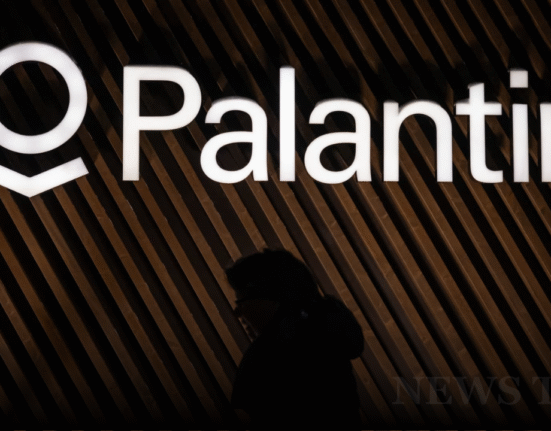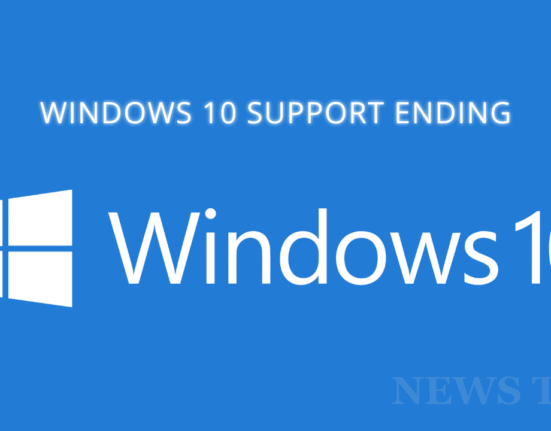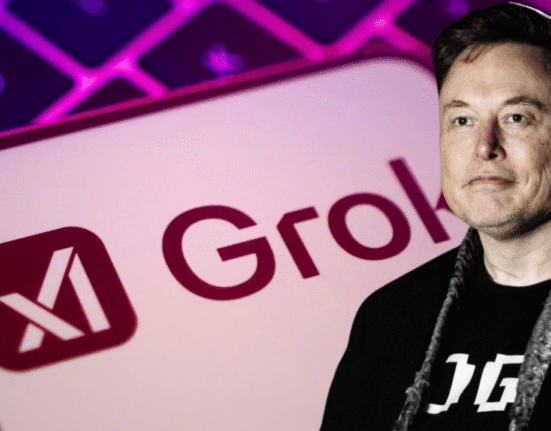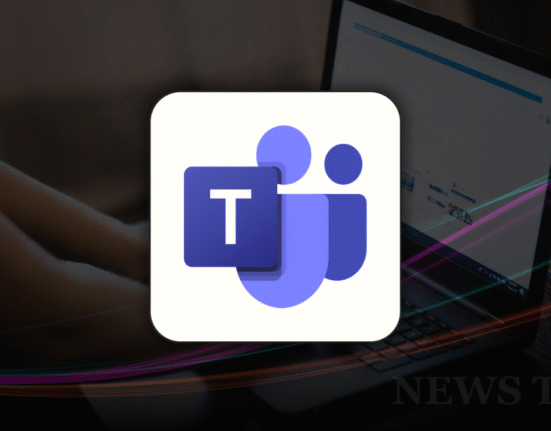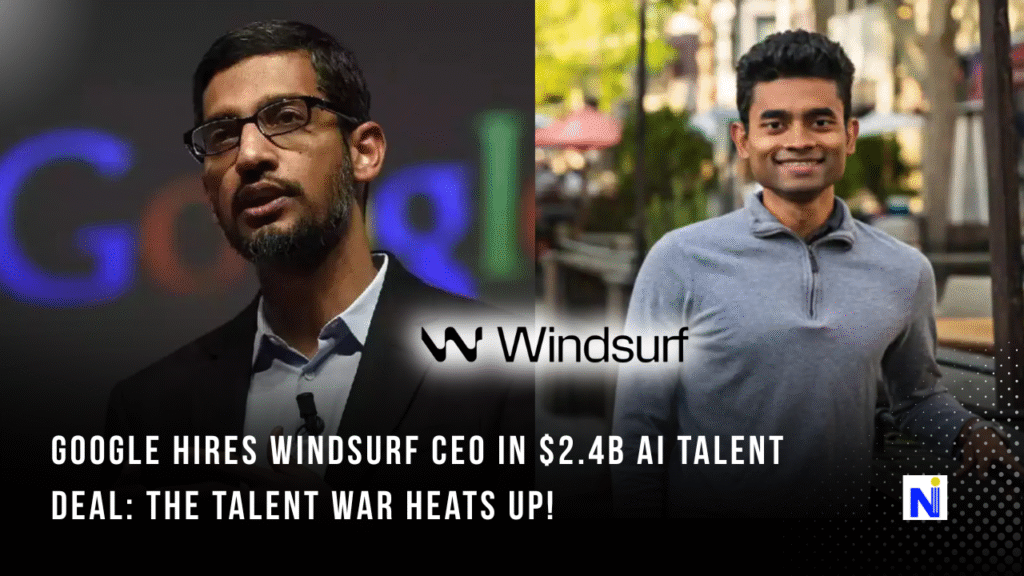
Google Hires Windsurf CEO in $2.4 Billion AI Talent Deal: Here’s What It Means for the Future of Agentic Coding
The AI talent war just got even hotter. In a move that’s shaking Silicon Valley and drawing fresh battle lines in the artificial intelligence arms race, Google has struck a $2.4 billion deal to hire Varun Mohan, the co-founder and CEO of AI coding startup Windsurf, along with several other top minds from the company’s R&D team.
This headline-grabbing development isn’t just about talent—it’s a strategic power play aimed at bolstering Google’s DeepMind division and enhancing its dominance in the emerging field of agentic coding. And while Windsurf as a company stays independent, it’s clear that its DNA will now be part of Google’s AI future.
What Is Agentic Coding and Why Does It Matter?
Before diving into the Windsurf-Google deal, let’s unpack what’s driving this frenzy.
Understanding Agentic Coding
Agentic coding is the next frontier in AI-assisted software development. It refers to AI systems that can take broader initiative in coding tasks, acting more like a human software agent than a simple autocomplete tool.
In layman’s terms: think GitHub Copilot with ambition.
- It writes code.
- It understands context.
- It iterates intelligently.
- It can handle projects start-to-finish with minimal input.
With tech giants racing to offer powerful developer tools, agentic coding is becoming the new gold rush.
Why Google Wants In—Deeply
According to a Google spokesperson:
“We’re excited to welcome some top AI coding talent from Windsurf’s team to Google DeepMind to advance our work in agentic coding.”
This isn’t Google’s first dance with AI startups. They previously poached talent from Character.AI and others, but the $2.4 billion figure suggests this move is on a whole different level.
Deal Details: Windsurf, Google, and a Billion-Dollar Strategy
The Basics
- Cost to Google: $2.4 billion (licensing fees and compensation)
- Who’s Moving: Varun Mohan (CEO), Douglas Chen (Co-founder), and other senior R&D engineers
- What Google Gets: Talent, a non-exclusive license to select Windsurf tech
- What Windsurf Keeps: Independence, product roadmap, ability to license tech to others
“Most of Windsurf’s world-class team will continue to build the Windsurf product with the goal of maximizing its impact in the enterprise,” said Jeff Wang, Windsurf’s new interim CEO.
Google won’t own Windsurf, but with top players and partial tech access, they might as well have bought its brain.
Internal and Industry Reactions
- OpenAI: Had been in talks to acquire Windsurf for $3B. Those talks fell through.
- Meta: Recently hired Scale AI founder Alexandr Wang for its AI strategy.
- Microsoft: Rolling out an agent mode in Visual Studio Code. CEO Satya Nadella said AI writes 30% of Microsoft’s code today.
Everyone’s grabbing top talent, but Google’s headline figure might just push rivals to go even bigger.
Windsurf: The AI Darling of 2025
Windsurf isn’t just another startup. It’s a vibe.
What Is Windsurf?
A rising AI coding platform, Windsurf gained traction with its take on “vibe coding”—a relaxed, modern approach to writing code with AI copilots that feel conversational, adaptive, and… well, vibey.
Why It Caught Fire
- Loved by developers and non-developers alike
- Rapidly growing enterprise client base
- Competing with Cursor and other emergent platforms
“Windsurf’s tech isn’t just smart—it’s intuitive. It feels like coding with a friend who knows way more than you,” said one Silicon Valley engineer anonymously.
| Company | Recent Activity | Notable Talent Moves |
|---|---|---|
| $2.4B Windsurf licensing | Varun Mohan, Douglas Chen | |
| Meta | $14.3B into Scale AI | Alexandr Wang |
| OpenAI | Tried acquiring Windsurf | – |
| Microsoft | Visual Studio agent mode | – |
Talent Wars: A Trend That’s Heating Up
This isn’t just about Windsurf. This is about the way Big Tech is acquiring human capital in the AI age.
Other Recent Moves
- Amazon: Absorbed top minds from Adept
- Microsoft: Brought in Inflection talent
- Google: Took slices of Character.AI’s team last summer
Everyone’s playing chess. And right now, Google just captured a queen.
What This Means for Developers
- Better tools, faster workflows
- More intuitive AI copilots
- Stronger focus on full-project assistance vs simple autocomplete
If agentic coding delivers, junior developers might have senior-level firepower—and seniors will become tech strategists more than daily coders.
Real Talk: The $2.4B Question
Was the deal worth it? That depends on where you sit.
- For Google: It’s an investment in leadership, ideas, and reputation. Talent is everything in AI.
- For Windsurf: It’s a win-win—money in the bank and the freedom to keep building.
- For the Industry: It sets a sky-high bar for AI hiring packages.
Windsurf to DeepMind—What’s Next?
This landmark deal is more than just another tech headline—it’s a statement. Google is betting big on agentic coding, on vibe-based developer experiences, and on people who can build the future of software development.
Whether this deal pays off depends on how well Google can integrate the talent and push the Gemini platform forward. But one thing’s clear: the AI talent war is escalating, and Google just launched a rocket.
What do you think about Google’s latest move? Share your thoughts in the comments below!


